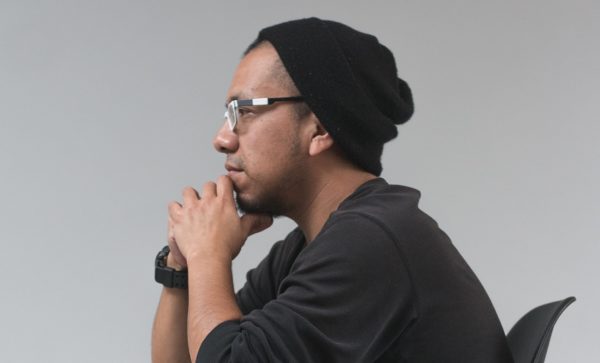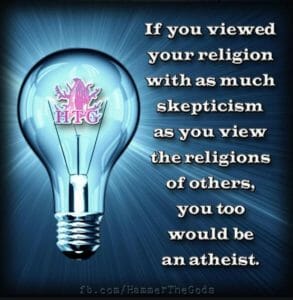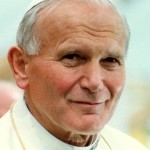Is There a Link Between Atheism and Skepticism?
by Dr. Randal Rauser
Filed under Uncategorized

There is a popular notion that doubt and skepticism are specially linked to atheism. But is that borne out by the evidence or is it just a bit of branding based on a limited selection of doubt?
It is also very common to find atheism being linked to skepticism. There is a popular narrative that traces the origins of skepticism back to ancient Greece when philosophers first began to doubt the existence of the gods as they had been popularly understood. One finds a reflection of the intimate link between skepticism and atheism in the fact that Jennifer Michael Hecht founds her book Doubt: A History on the theme of specifically religious doubt. She writes, “There are saints of doubt, martyrs of atheism, and sages of happy disbelief who have not been lined up as such, made visible by their relationships across time, and given the context of their story.”1 This link between skepticism or doubt and atheism carries through in Hecht’s “Scale of Doubt Quiz” which is intended to chart the reader’s degree of skepticism in thirteen questions. Included in the list are questions about whether one believes a particular religious tradition includes correct information about the nature of ultimate reality (question 1), whether an intelligent being created the universe (question 2), whether prayer is effective (question 4), and whether the experience of love and morality points to a dimension of existence beyond biology, social patterns, and chance (question 11). Answering all the questions negatively places you at the high skeptical end of Hecht’s scale meaning that “you’re a hard-core atheist and of a certain variety: a rational materialist.”2

Note that Hecht’s quiz is structured so as to assume that assent to a robust system of religious doctrine is equivalent to “belief” while failure to accept the various doctrines that tend to comprise that system is equivalent to “doubt.” Insofar as people tend to equate a higher degree of skepticism with higher rationality, the result is to equate higher rationality with stronger doubt of religious doctrine and diminished rationality with stronger belief in religious doctrine.
Perhaps an even bigger problem here is that Hecht’s so-called “Scale of Doubt” fails to recognize that a negative answer to each of her questions counts as belief in what she calls rational materialism. In short, to answer “no” to particular beliefs entails a yes to other beliefs. For example, consider this entry on the Scale of Doubt: “Do you believe that the world is not completely knowable by science?”3 If one answers “no” here, then one is in effect saying yes to scientism by affirming that the world is completely knowable by science. But why doesn’t doubt of scientism count in placing one higher on the Scale of Doubt, particularly when the thesis is highly contentious among philosophers?4
Let’s put it another way. By simply rewriting Hecht’s questions, we could refashion the Scale of Doubt so that doubt counts when it is directed at materialist rather than theistic or religious claims. In that way, the atheist materialist would suddenly be labelled the credulous believer in such things as scientism while the theist would be considered the rational doubter because she doubts those same claims.
To be sure, neither one of these alternative scales is a fair measure of doubt, still less of rationality. And I would think that the ultimate goal of skepticism and doubt presumably is the pursuit of rationality. Skepticism and doubt are not ends in themselves. They are only of value insofar as they are part of what it means to believe in accord with reason. With that in mind, we need to appreciate that the most doubtful person is most certainly not the most rational person. To illustrate, picture the person who seeks to be maximally skeptical and so they doubt the testimony of every person they meet, they doubt the reliability of their memory, they doubt their sense perception, and their reasoning faculties. From there they could go on to doubt the existence of the external world, other minds and, if they were really keen, even their own existence.5 But there comes a point in all this doubting when you shift from being a paragon of rationality to being a person in need of professional counselling. Unremitting doubt of all things is not the path to rationality.
The lesson, as has oft been observed, is that while there is a place to believe our doubts and doubt our beliefs, reason also calls us to believe our beliefs and doubt our doubts. You see, rationality is not one-sidedly aligned with doubt. Rather it seeks the proper balance between the two. Philosopher Anthony Kenny describes reason well by understanding it in the terms of the Aristotelian concept of virtue as the balance between two vices: “The rational human being is the person who possesses the virtue that is in contrast with each of the opposing vices of credulity and skepticism.”6
Even if belief is a critical part of reason, the public perception remains that skepticism (and doubt) are closely linked to rationality and, even more importantly, to atheism. At a cultural level, this perception might seem to be vindicated by the fact that pro-skeptic organizations like the Committee for Skeptical Inquiry; (CSI; formerly CSICOP: Committee for the Scientific Investigation of Claims of the Paranormal) and the Skeptics Society seem to have a close alliance with the atheistic community.
Since Paul Kurtz cofounded CSICOP in 1976 the organization has cultivated a well-earned reputation as a bastion of critical thinking. Key to CSI’s current mandate is to investigate and debunk various tendentious claims including those of faith healers and so-called prayer experiments which seek to validate the value of petitionary prayer. These endeavors have helped perpetuate the perception among many that skepticism is inimical to theistic belief.
As for the Skeptics Society and its flagship publication Skeptic magazine, these too are commonly associated not simply with skepticism but with outright atheism. Perhaps this isn’t surprising given that Richard Dawkins, widely reputed as the leading atheist in the world, is on the editorial board of Skeptic.7 And Dawkins himself certainly does see a tight connection between rationality and atheism. In addition, Michael Shermer, the founding publisher of Skeptic, has been an outspoken defender of atheism.
The way that skepticism seamlessly unites with atheism is evident in my atheist friend (and coauthor) Justin Schieber,8 who is described online as focusing on “promoting critical thought, more specifically, a friendly yet firm skepticism towards religious claims.”9 Note how Schieber links skepticism with an attitude toward explicitly religious claims, a casting of skepticism as specially directed toward religiously claims. This seems to echo Hecht’s Scale of Doubt.
While groups like CSI and the Skeptic Society might appear to bind atheism to skepticism, this association does not hold up to scrutiny. Where CSI is concerned, we can note the case of Martin Gardner. A mathematician, philosopher, and magician, Gardner committed much of his life to promoting the values of skepticism and critical thinking while deftly exposing instances of pseudoscience in the wider culture. He first rose to prominence in 1957 with the publication of the phenomenally popular book Fads and Fallacies in the Name of Science.10 Later, in 1976 Gardner joined Paul Kurtz as one of the founders of CSICOP.
While he was among the preeminent skeptic debunkers, Gardner also remained a theist throughout his life. To be sure, he rejected all religious traditions, so in that sense, his skepticism was well on display. Nonetheless, he maintained a belief in a supreme divine intelligence that governed the universe. Gardner described his views at some length in his book The Whys of a Philosophical Scrivener.11 And he readily acknowledged that some skeptics found his theism to be an idiosyncratic fit with his skepticism. He writes: “My atheist and agnostic friends never cease to be amazed and dismayed over how I manage to be such a thoroughgoing skeptic of the paranormal and still retain a belief in God. It’s as if they think that anyone who doubts Uri Geller’s ability to bend spoons with his mind must also doubt the existence of God!”12 Gardner’s point is well taken. A person can be a wise skeptic of the spoon-bending showman who makes a fortune off his alleged telekinetic powers and at the same time one can find reason to believe in a necessary divine agent who created and sustains the universe. (Or, to put it another way, one might doubt both the magician who purports to bend spoons with his mind and the atheist who insists that the universe came to exist uncaused.)
Once we reject Hecht’s equation of skepticism and doubt with acceptance of one particular set of beliefs (e.g. those of the atheistic materialist) we are reminded that just as one skeptic can accept scientism (for better or for worse) so another skeptic like Gardner is free to accept theism. If I may take the liberty of reworking an oft-repeated quote from Stephen Roberts, the theist may reply to the skeptic, “I contend that we are both skeptics, I just believe in one more god than you do.”
Gardner may provide a visible reminder that CSI is not necessarily atheistic, but what about the Skeptics Society and Skeptic magazine? After all, as we saw, Richard Dawkins is on the board of Skeptic and he is certainly no friend of theism. And don’t forget Michael Shermer who has been a frequent critic of God and religion.
However, here too a closer look reveals the lines of demarcation are not quite as stark as many believe. Back in 1994 conservative talk radio host Laura Schlesinger was invited to join the board of Skeptic. The invitation was given before Dr. Laura converted to conservative (and later Orthodox) Judaism. However, the critical point to note is that her later religious conversion had no negative impact on her ability to serve on the board of Skeptic. But this is not to say that everyone was comfortable with the role of a theist on the board. In his book How We Believe Michael Shermer recalls how he received expressions of concern from supporters of the Skeptics Society about Schlesinger’s role with the magazine. One writer expressed concern based on the fact that Schlesinger regularly appealed to the Bible as an authority on her radio show: “I didn’t know that skeptics relied on authority to settle disagreements over morality.”13 Nor was that the only objection to Schlesinger. Shermer notes that he received several more letters, faxes and emails in 1996 and 1997 protesting Schlesinger’s continued membership on the board.
However, in a triumph of true intellectual freedom, Shermer steadfastly defended Schlesinger’s role on the board. As he put it,
We explained that membership or involvement in any capacity with the Skeptics Society and Skeptic magazine is not exclusionary. We could not care less what anyone’s religious beliefs are. In fact, at least two of our more prominent supporters—the comedian and songwriter Steve Allen and the mathematician and essayist Martin Gardner—are believers in God. Other members of the board may believe in God as well. I do not know. I have never asked.14
Shermer goes on to insist that the Skeptics Society and Skeptic magazine have no objection per se either to theism or to religious commitment. Rather, their concern arises only when individuals or groups make claims that are open to rational investigation whether the topic involves Uri Geller’s spoon-bending, climate change deniers, or a religious claim involving the Shroud of Turin, faith healing, or the young earth creationist’s reconstruction of earth history. As Shermer puts it, “If, in the process of learning how to think scientifically and critically, someone comes to the conclusion that there is no God, so be it—but it is not our goal to convert believers into nonbelievers.”15
Related Posts
Notes:
- Hecht, Doubt: A History (New York: HarperOne, 2003), ix. ↩
- Hecht, Doubt: A History, xi. ↩
- Hecht, Doubt: A History, x. ↩
- For a good introductory critique of scientism see Philip Kitcher, “The Trouble with Scientism,” New Republic (May 3, 2012), https://newrepublic.com/article/103086/scientism-humanities-knowledge-theory-everything-arts-science (Accessed online July 5, 2016). ↩
- Descartes famously thought he established at least that he exists. But his critics insisted that all Descartes really established is that “There are thoughts.” See Robert Solomon and Kathleen Higgins, The Big Questions: A Short Introduction to Philosophy, 9th ed. (Belmont, CA: Wadsworth, 2014), 199. ↩
- Anthony Kenny, What Is Faith? Essays in the Philosophy of Religion (Oxford: Oxford University Press, 1992), 6. ↩
- https://en.wikipedia.org/wiki/Skeptic_(U.S._magazine) (Accessed June 24, 2016). ↩
- Schieber and I authored the book An Atheist and a Christian Walk into a Bar: Talking about God, the Universe, and Everything (Prometheus, 2016). ↩
- See http://freethoughtblogs.com/reasonabledoubts/#ixzz4CW2ZuZBC (Accessed on July 2, 2016). ↩
- Fads and Fallacies in the Name of Science (New York: Dover Publications, 1957). ↩
- The Whys of a Philosophical Scrivener (New York: W. Morrow, 1983). See also his 2008 interview with Alexander Carpenter, “Martin Gardner on Philosophical Theism, Adventists and Price,” Spectrum (October 17, 2008) http://spectrummagazine.org/node/1091 (Accessed on June 27, 2016). ↩
- Gardner, “Confessions of a Skeptic,” in Bryan Farha, ed. Pseudoscience and Deception: The Smoke and Mirrors of Paranormal Claims (Lanham, MY: University Press of America, 2014), 122. ↩
- Shermer, How We Believe: Science, Skepticism and the Search for God, 2nd ed. (New York: Henry Holt, 2000), xiii. ↩
- Shermer, How We Believe: Science, Skepticism and the Search for God, xiii. ↩
- Shermer, How We Believe: Science, Skepticism and the Search for God, xiv. Dr. Laura did choose to leave the board later based on her concern that an edition of Skeptic was unfairly targeting belief in God. But from Shermer’s perspective, the magazine was simply subjecting theistic belief to the same critical eye that they subject every other belief. There certainly was no intent of aligning skepticism with atheism. ↩
Note: Our goal is to cultivate serious and respectful dialogue. While it's OK to disagree—even encouraged!—any snarky, offensive, or off-topic comments will be deleted. Before commenting please read the Commenting Rules and Tips. If you're having trouble commenting, read the Commenting Instructions.












